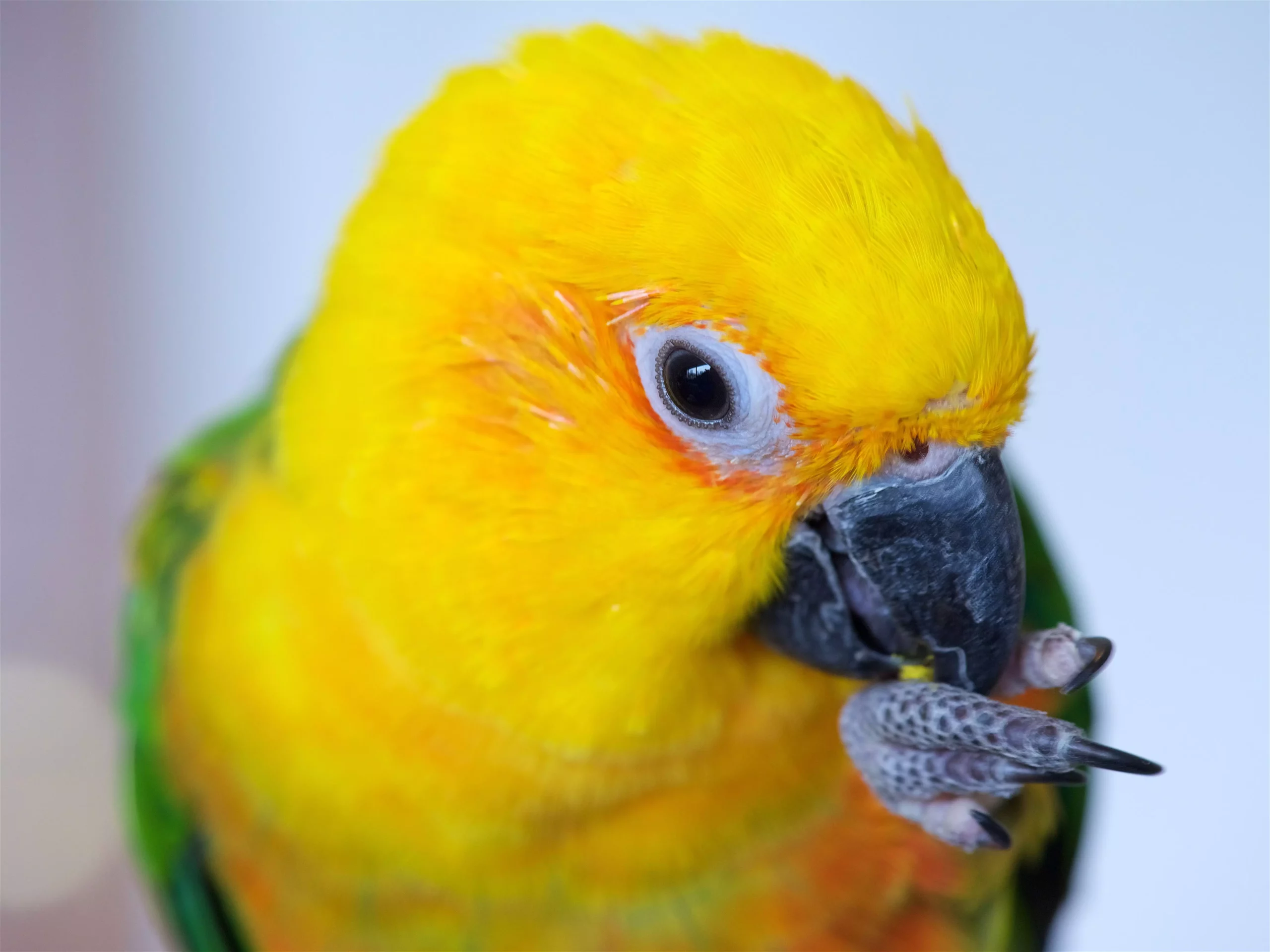Birds have long been cherished companions in households worldwide, and among them, jenday conures stand out for their lively disposition and colorful plumage. Originating from the lush woodlands of northeastern Brazil, these birds are not only stunning to behold but also possess unique personality traits that make them sought-after pets. This article delves into the essential characteristics of jenday conures, their care requirements, and what prospective owners should consider before welcoming one into their home.
Jenday conures, scientifically known as *Aratinga jandaya*, are small parrots measuring approximately 12 inches in length. Known variously as yellow-headed conures, flaming parakeets, and jandaya parakeets, they are recognized for their multicolored feathers, which consist of a vibrant red-orange body, green wings, and a sunny yellow head adorned with orange facial patches. Their playful nature and affectionate demeanor make them particularly endearing to families, especially those with younger members.
These small parrots exhibit a strong propensity for social interaction, requiring considerable attention and companionship from their owners. They thrive in environments where they can forge connections with their human flock, making them less suitable for individuals who find themselves frequently away from home. Owners with dedicated time to invest in their pet can anticipate a rewarding companionship that can last over 30 years, assuming proper care is provided.
Jenday conures are inherently social creatures. These birds enjoy the company of their humans and often bond closely with them. Many jenday conures develop a specific attachment to one person in the household, while others happily integrate into family life. Regardless of individual preferences, they typically relish being handled, cuddled, or simply sitting on an owner’s shoulder.
However, potential owners should be prepared for the energetic vocalizations that come with keeping a jenday conure. While they tend to mimic household sounds like microwaves or doorbells, many owners report that jendays can be quite loud, particularly if they feel ignored or isolated. This unique quirk can lead to noise complaints in shared living spaces, such as apartments. Thus, a careful assessment of your living situation should take place before acquiring one of these spirited companions.
A well-cared-for jenday conure requires not just emotional engagement but also physical stimulation and proper nutrition. Providing a spacious and engaging habitat is paramount; these birds need cages that allow them to move freely and safely spread their wings. The minimum cage dimensions should be 3 feet in height, length, and breadth, with additional space recommended for those keeping pairs of conures.
Diet plays a crucial role in a jenday’s health. In the wild, their diet consists primarily of fruits, seeds, and nuts. In captivity, a balanced pelleted diet enriched with fresh fruits and vegetables is vital to meet their nutritional needs. Portion control is essential, as these birds can be prone to obesity if their diet is not monitored carefully. Daily interaction outside of the cage is also important; allowing at least two hours of out-of-cage time encourages natural behaviors and fosters their playful nature.
Although jenday conures are generally sturdy birds, owners must remain vigilant about potential health issues. Some common concerns include Proventricular Dilatation Disease, beak and feather disease, and bacterial infections. Signs of illness may manifest as lethargy, loss of appetite, or changes in feather condition. Regular veterinary check-ups with an avian specialist will help ensure your pet remains in good health.
Learning about the signs of distress in a jenday conure is vital for any owner. A well-behaved, healthy jenday will typically display active behavior, bright eyes, and vibrant feathers. Unkempt feathers or disinterest in activities may signal underlying health issues that require immediate attention.
Before bringing a jenday conure into your home, check local regulations concerning their ownership, as laws can vary significantly by location. Some jurisdictions require permits, while certain areas might restrict ownership altogether. Additionally, selecting a bird that has been properly socialized and cared for from an early age increases the likelihood of a harmonious pet-owner relationship.
Regarding cost, acquiring a jenday conure can be a financial commitment, often starting at around $600. However, this figure does not account for ongoing expenses related to food, veterinary care, housing, and toys. Prospective owners should consider their ability to provide for these needs over the lifespan of their pet before making the commitment.
Jenday conures are vibrant, affectionate, and energetic companions that can brighten any household with their lively spirits. However, they demand ample time, space, and care to thrive. Understanding their needs and characteristics can ensure a delightful and enriching experience for both the owner and the pet.

